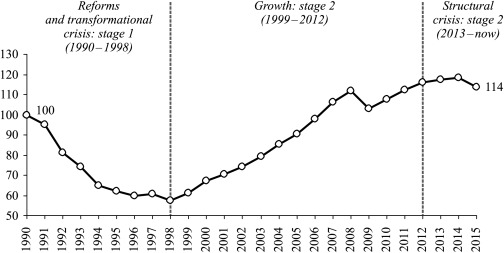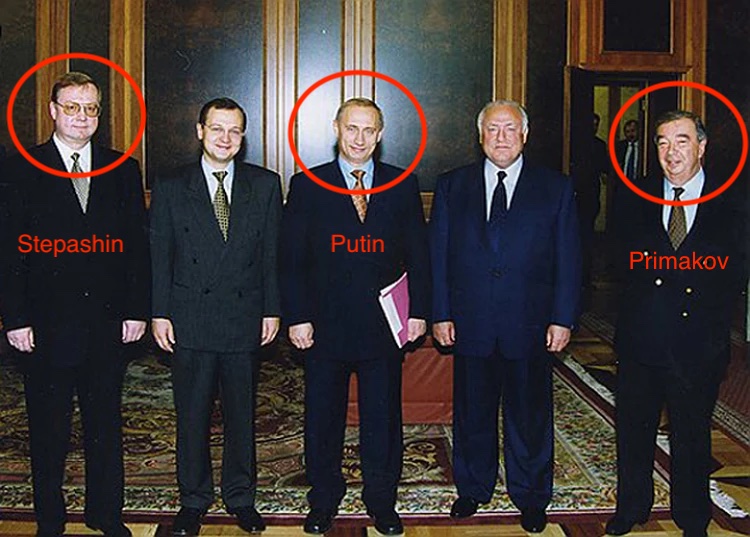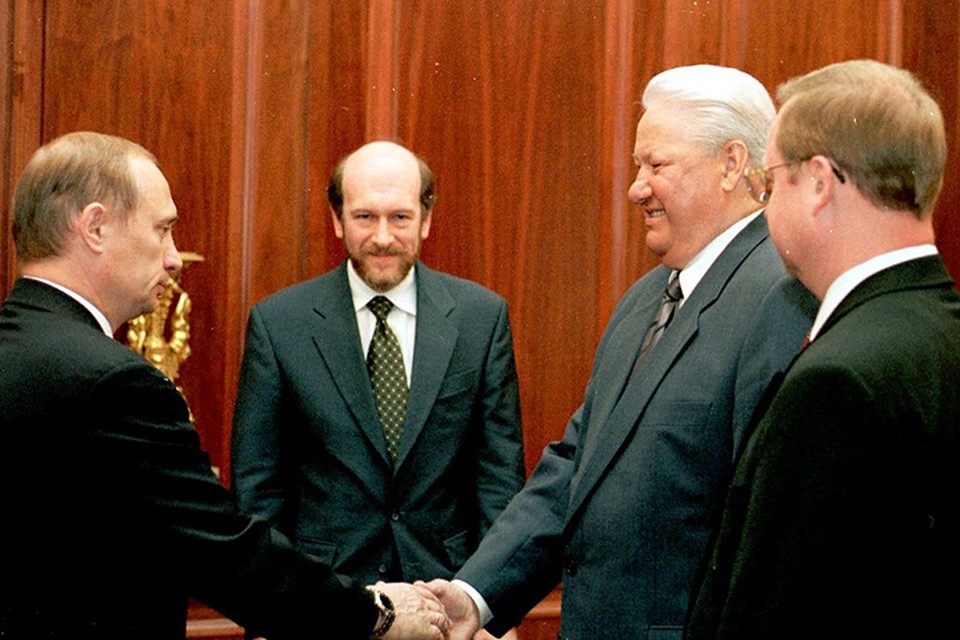
How can Putin make stuff?
Chinese-Russian alignment is much like Schroedinger's cat. It's alive and dead at the same time. Let me illustrate this on example of the Russian military industry, which contrary to the popular opinion is *not* backed by China. It's backed by Europe🧵
Chinese-Russian alignment is much like Schroedinger's cat. It's alive and dead at the same time. Let me illustrate this on example of the Russian military industry, which contrary to the popular opinion is *not* backed by China. It's backed by Europe🧵

Consider this great article by Vershinin. The West largely lost its industrial warfare capabilities, but Russia did not. Its military strategy is based on capacities to produce lots of missiles and shells. Way more than the US is able to produce
rusi.org/explore-our-re…
rusi.org/explore-our-re…

Russian missile and artillery centric strategy is possible only due to the superior capacity to mass production. Russia can afford firing so many missiles and shells, because it produces many of them, way more than the US can make
But how is that possible?
But how is that possible?

Vershinin describes superior Russian capacities for the mass production, but never explains how is that possible. He points out to China "standing behind the Russia" but then admits that China didn't provide military assistance yet
It didn't provide industrial assistance either
It didn't provide industrial assistance either

There's much less continuity between the Soviet and Russian military production than many tend to think. In the 1990s the Russian military industrial complex went through a catastrophe. Russia inherited most of the Soviet army, but only a fraction of the Soviet economic potential 

Economic decline -> Government military expenditures drop -> Military plants are in crisis -> They stop paying to workers and buy almost no new machine tools -> Machine tools industry dies
That's not collapse of an industry. That's a collapse of the entire technological chain
That's not collapse of an industry. That's a collapse of the entire technological chain

Machine tools are the major bottleneck in virtually any technological chains. Soviet Union had a large machine tools producing industry and could even export them. But in the 1990s Soviet machine tools industry died. Later it could not be restored and was not restored
Why?
Why?

Because the technological order changed. In 1950 industry relied on non programmable machine tools. But since the 1970s Japan pioneered a CNC revolution by introducing the new programmable ones. The USSR tried to join it, but not that successfully. And then it collapsed
When we are talking about the crash of the Soviet technological chains and specifically of the machine tools bottleneck, it's important to understand, the collapse was uneven. Old, non programmable production crashed. But the Soviet CNC production was obliterated completely
Old, non programmable Soviet tools had the advantage of being cheap and familiar. But the Soviet programmable tools were never that cheap or that good and existed only due to the heavy government investments. Investments stopped, the experiment with programmable tools stopped too
When discussing the Soviet technological collapse too much focus is being made on white collars (scientists, engineers) and too little on blue collars. I think it's mostly the social prejudice against the manual labourers. What did the Soviet collapse mean to them?
In Soviet times industrial workers were a well respected and highly paid caste. Qualified workers on the military industry were usually qualified lavishly. They were rich. Now they became beggars. Plants didn't usually lay them off, they just wouldn't pay, often for years
That doesn't mean everyone left the factories. Many stayed there even getting little or no compensation. But that meant that they had nearly zero inflow of the fresh blood. It were the same workers growing old on a factory, the new generation didn't come
That had a more detrimental effect than one could think. Paradoxically enough, old, simpler tools were way more difficult to operate than modern programmable ones. You need much higher qualification and longer training to operate an old Soviet machine than a new brand CNC
In Soviet times the youth were financially incentivised to get such training. At the age of 13-14 you go to a vocational school, you get training, then you are guaranteed the employment and you are really rich. Makes sense. In 1990s choosing this career made no sense
Old workers grew old on the factories. New workers didn't come and if they did they didn't stay for long. The entire vocational schools system deteriorated both for the lack of funds and the lack of motivated applicants. There was no financial incentive to become a worker anymore
In 1998 Russian economy reached the bottom and started bouncing back. In 2000s it was showered by the oil money and of course the Kremlin decided to invest much of the export revenue into restoring its military potential. But how? That's a really funny story
First, they pumped money into the army. Then the army started buying stuff from the military factories. And then the military factories faced the problem of not being able to meet all this new unexpected demand. Because they lacked the machine tools for this production
It seems that the Putin's logic and the course of actions was exactly reverse to the Stalin's. Stalin made a specific focus on "producing the means of production" which would be the foundation for anything else. Putin apparently didn't think about it till the last moment
Russian government made three comprehensive programs for the import substitution in the machine tool industry. Each program failed as the authors of the next program would admit later. Russia had no capacity of fixing this bottleneck or restoring the old Soviet capacities. Why?
Partially because it didn't have the same workers. Soviet Union had a large pool of highly qualified industrial workers operating the non programmable machines. Who basically had to train their entire lives, till their teens. And it was training new ones constantly
In the 1990s production of industrial workers crashed. The Soviet CNC production died. The only thing Russia had was a small part of the USSR non programmable machine tools production. The problem was that operating those machines required high qualification and the long training
But Russia had almost no youngsters with such training. The last workers who could operate old machines dying or retiring seems to be quite a typical picture for the Russian military production circa 2005-2010. And the new ones will never be trained
Even if the new ones could be trained that would make little sense, because the old tacit knowledge died anyway. Numerous Soviet technologies, like the tank barrel production were lost and couldn't be restored. So restoring the Soviet technological chains made no sense anyway
In 2000s Kremlin wanted to restore the army and had oil money for that. But:
1. It didn't have the Soviet tools production
2. It had no people to operate the Soviet tools
3. Even if had people to operate them, tradition had been already interrupted and the tacit knowledge died
1. It didn't have the Soviet tools production
2. It had no people to operate the Soviet tools
3. Even if had people to operate them, tradition had been already interrupted and the tacit knowledge died
What could the Kremlin do? While making all those ritual talks about the import substitution, it would just buy Western tools. NB:
1. Almost all Russian tools are imported
2. They are mostly imported from Germany
3. The Russian military industry consumes 85% of the machine tools
1. Almost all Russian tools are imported
2. They are mostly imported from Germany
3. The Russian military industry consumes 85% of the machine tools
While Germany is providing the lion share of tools and industry for the Russian military production, in fact Russian military plants had a broad range of suppliers. Switzerland, Italy, Japan, the USA and others 

Anecdotally the Russian military industry could even use Australian or Turkish tools. See this Turkish Eroglu machine on Kalinin plant that is producing the S-300 air defence systems. See it here on 8:18 in a video on the 150th anniversary of the plant


There is a massive evidence of the Russian military industry, including the cruise and ballistic missiles industry using the foreign tools:
1. German (mostly)
2. But also other European, Japanese, American or even Australian/Turkish
But I *never* saw them using anything Chinese
1. German (mostly)
2. But also other European, Japanese, American or even Australian/Turkish
But I *never* saw them using anything Chinese
Why? I have some ideas, though I can't prove them. The first one is that China shares some of the same or similar industrial chokepoints as Russia. Like the instruments or high end bearings. China just can't provide *everything* that Russia needs
cset.georgetown.edu/publication/ch…
cset.georgetown.edu/publication/ch…
And yet, even though China can't cover all of Russia's bottlenecks it could at least help to cover some of them. Why don't we see it? Why Russia uses so much Swiss or Japanese tools but we don't see it using Chinese? Are Chinese tools all that bad? Not necessarily
My second hypothesis is that while decision to use Chinese tools might sometimes make sense technology-wise, it's unjustifiable. A manager may take a decision to use a Chinese tool and he may even consider it rational. But he can't justify it and can't push it through the system
Decisions taken in large systems are not necessarily the most "rational" or "optimal". More often than not, they are simply more justifiable. Yeah, you kinda want to optimise the process or reduce the costs. But you also need to minimise the opposition and objections from others
It's possible that *some* Chinese tools could be a cheaper and sufficiently good alternatives to the Western ones. But pushing a decision to buy Chinese stuff through the system could rise so many objections, that you just choose the path of the least argumentative resistance
Thirdly and more importantly, it's highly likely that the technological import from China is the only import that is *actually* prohibited in the Russian military industry
Hypothesis: Russian military industry is allowed to buy from *anywhere* in the world except for China
Hypothesis: Russian military industry is allowed to buy from *anywhere* in the world except for China
Let me give some context. In the 2000s formal requirements to the import substitution for the machine tools in military industry were very flexible. Since 2014 they were becoming more and more rigid, becoming unreasonable or even absurdly strict. They became impossible to meet
Since 2014 machine tool suppliers operated under the absurdly strict import substitution requirements they couldn't meet. What would they do?
1. Some ignored them
2. Some did it through proxies or just changed the labels
3. Some "localised" production in Russia (BS ofc)
1. Some ignored them
2. Some did it through proxies or just changed the labels
3. Some "localised" production in Russia (BS ofc)
Most or all of it technically constituted fraud from the perspective of the Russian law. It created many "scandals" when one producer accused another producer of passing let's say Italian tools for the home produced Russian ones. Lots of shittalk, no local consequences
At this point it seems that while Russian law forbids to label Western stuff as Russian or knowingly underestimate the share of foreign components there so it would look more Russian and more import substituted, all of these requirements are ignored. No prosecutions ever
You buy German, Swiss, American, Italian, Australian, Turkish etc tools and pretend it's Russian - that's ok. Yeah, your competitors might publish materials on you, calling you out for you fraud, but that's it. In practice the FSB won't intervene
But God forbid you buy Chinese. The only two actual prosecution scenarios I managed to find are:
1. You buy Chinese and pretend it's Russian
2. You buy Chinese and pretend it's Western
That's how you can *really* get to prison. And some do
1. You buy Chinese and pretend it's Russian
2. You buy Chinese and pretend it's Western
That's how you can *really* get to prison. And some do
At this point it looks like the import substitution requirements are just too strict and everyone knows it. The FSB can't enforce them, because it does, it would just paralyse the military production and will be punished for that. It just has no option to enforce them
But they are selectively applied against those actors who try to organise the technological import from China. Now the law can and will be applied. And they go to jail. Russia is ruled *by* the law, law is more of a weapon here. It's used only if you supply Chinese stuff
Why? Good question. One hypothesis may be is that the Russian ruling class thinks Chinese tools are unreliable. So if you supply them you are theoretically jailed for fraud, but in reality for providing unreliable stuff. If you made a fraud by providing German stuff, that's ok
Racism may be an important factor here. On a Russian racial ladder Westerners stay higher than Russians as a sort of "more real" Whites. And Japanese are kinda honorary Whites, while Chinese are regarded as subhumans
Counterpoint: the Turks are viewed as subhumans, too
Counterpoint: the Turks are viewed as subhumans, too
We could write it off to racism, if the Russian military producers were allowed to buy ubermenschen (German, Swiss) produced stuff, but not the untermenschen (Turkish, Chinese) produced one. But the Turks stand just as low on the Russian racial hierarchy as the Chinese
Which makes me think, it's not racism. It's probably fear. Until 2022 Russian industrial managers, technologists, economic policy makers and probably even the state security never believed they could get into a conflict with the *unified* West. So buying Western tools was ok
Let me get it straight. Apparently Russia was escalating the conflict with the West and many understood it. But they assumed that the West would be divided, consumed with the internal strife and couldn't act as one anyway. So the technological import from there was okayish
On the other hand, Russia was theoretically aligning with China. But Russian actors, in industry, in bureaucracy, in state security, they acted upon assumption that should a conflict with China happen, China will act as one. They viewed it is a centralised structure, like Russia
I can't prove it, but I am inclined to think that the following consideration could lead to actually and unironically the Chinese technological import in the Russian military industry, selectively enforcing the import substitution requirements here and only here
Technological import from the West certainly poses risks. But they are manageable. Yeah, we are kinda escalating. But with the West so divided, there's not much they can really do
Technological import from China may not present risks. But if it does, they will be unmanageable
Technological import from China may not present risks. But if it does, they will be unmanageable
The discussion on the Russian-Chinese alignment focuses too much on the public rhetorics and fails to consider the deep fear of China that is very typical for Russian bureaucracy. They thought that in case of conflict China can make a unified response and were terrified
A certain distancing from China in pre-2022 era may be motivated by the fear and mistrust of a supposedly unified superpower that can pose unmanageable risks. Meanwhile, the disunited West couldn't do a unified response and posed no such risks. Import from there, not from China
The lack of strong Russian-Chinese alliance before 2022 can be partially explained by this risk asymmetry. But now there's no such asymmetry anymore. To the surprise of Russian elites and bureaucracy, the West gave or at least attempted to give a unified response -> We were wrong
After February 2022, Russian actors, including industrial managers, technologists, bureaucracy, state security, will view the technological dependency upon the West just as unmanageable as that upon China. Plus, unlike China, this risk is pretty much certain
You should understand clearly that from the Russian standpoint, the scale and intensity of sanctions was a surprise attack. And indeed it was, such intensive sanctions were simply never imposed before. Russia was taken by surprise. But you can only play this trick once
Let's sum up. Before 2022, Russian actors acted upon assumption that while the West posed manageable risks, China posed unmanageable ones. So while the political leadership inclined to China, the apparatus as a whole distanced from it. That's why "alignment" was so idiosyncratic
But after 2022 with the massive sanctions imposed out of nowhere, no such asymmetry longer exists. Irrespectively of the rhetorics& agenda of political leadership, the actors and apparatus won't have that anti-Chines animus as before. Russia is now cured from Sinophobia. End of🧵
• • •
Missing some Tweet in this thread? You can try to
force a refresh










